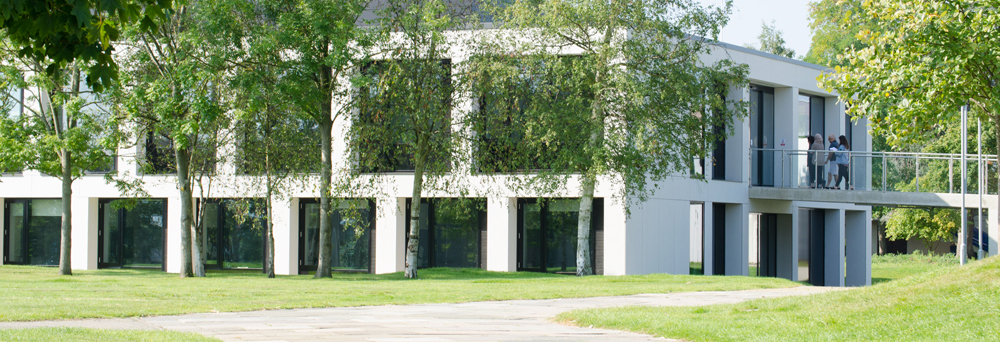Become a barrister
How to become a barrister
This brochure produced by the Bar Council tells you everything you need to know: https://www.barcouncil.org.uk/resource/becoming-a-barrister-2019.html
Essentially, the process to become a barrister is relatively straightforward and it involves 3 stages:
- Academic Component – getting a law degree or another degree + the conversion course (usually called the Graduate Diploma in Law (GDL))
- Vocational Component – the bar course. For details of this see – See: https://blogs.kent.ac.uk/getintolaw/how-to/becoming-a-barrister/bptc/
- Work Based Component – Pupillage.
Is it hard to become a barrister?
Becoming a barrister is hard work and very costly. Barristers numbers are about a 10th of solicitors and we have all heard about how hard it is to get Pupillage even once you have the BPTC. But what are the true facts? As a starting point you should read this article on Chambers Student: http://www.chambersstudent.co.uk/the-bar/a-career-at-the-bar/a-preliminary-warning
https://www.chambersstudent.co.uk/the-bar/a-career-at-the-bar/a-preliminary-warning – this is a long read with lots of warnings about chances of success. Some really useful and interesting things to think about including the ration of applications : pupillages. I don’t include this article with the intention of deterring you from the Bar – I’ve included it so that you are prepared! If you really want this, go for it but make sure that you heed the warnings and you do everything that you can to enhance your profile and your chances of success. One of the most important qualities you WILL need is resilience. Make sure you can handle rejection but you will have to deal with this.
Suggested Resources
- The Bar Council’s brochure on Becoming a Barrister file:///C:/Users/Laptopuser/Downloads/Becoming%20a%20Barrister%20Online%20Brochure%202022.pdf
- Everything you need to know about becoming a barrister from the Bar Standards Board:https://www.barstandardsboard.org.uk/training-qualification/becoming-a-barrister.html
- Middle Temple Pupillage Podcast
 This is an ever-growing and excellent insight into becoming and being a barrister. It’s hosted by Middle Temple members of 5 Essex Court. Podcasts focus on a different aspect of the pupillage process, from creating your CV and joining an Inn, to acquiring advocacy experience and doing pro bono work; from how to approach mini-pupillages, to applications and interviews. Listen to the Pupillage Podcast on:
This is an ever-growing and excellent insight into becoming and being a barrister. It’s hosted by Middle Temple members of 5 Essex Court. Podcasts focus on a different aspect of the pupillage process, from creating your CV and joining an Inn, to acquiring advocacy experience and doing pro bono work; from how to approach mini-pupillages, to applications and interviews. Listen to the Pupillage Podcast on:
iTunes – https://podcasts.apple.com/gb/podcast/the-pupillage-podcast/id1448140217?mt=2
Spotify – https://open.spotify.com/show/3zwLF5UkU0HfhxV82GlIyz
SoundCloud – https://soundcloud.com/pupillagepodcast
MixCloud – https://www.mixcloud.com/
- Target Jobs National Pupillage Fair – Every autumn the above takes place in London. If you want to be a barrister it is worth attending. However, if you miss out, or you simply want to consider whether to attend next year you can watch videos of the presentations given on You-Tube here – https://www.youtube.com/user/targetjobsuk
Bar Courses
Find a Bar Courses here – https://www.lawcareers.net/Explore/Features/23112021-Bar-courses-a-students-guide-to-barrister-training-2022-23
BCAT
The /Bar Course Aptitude Test is no longer required.
The Inns of Court
Commercial Awareness
Don’t be fooled into thinking that you don’t need to be commercially aware – you do! 80% of barristers are self-employed so you need to know about business! Equally, if you are interested in the Chancery Bar then you also need to know about other peoples’ businesses! Whichever area of law you think you want to go into – you should be up to date with the news and issues that affect it. Despite being called “commercial awareness” is not necessarily ‘commercial’ in nature! Remember PEST – what are the Political, Economic (some may prefer Environmental), Social and Technological influences on your areas of legal interest? You will find lots of resources for building commercial awareness on https://blogs.kent.ac.uk/getintolaw/how-to/becoming-a-solicitor/commercial-awareness/ but the following bar-specific resources will also help.
- 4 New Square podcasts – ‘Analysis: Commercial Dispute Resolution and Life at the Bar’. cover recent developments in commercial law and life at the Bar. You can subscribe to the podcast on Apple Podcasts, Android and Google Podcasts (just type 4 New Square or the podcast name into your podcast app) or you can listen via their website here – https://www.4newsquare.com/podcasts/
- Criminal Bar Quarterly is a professional journal for criminal barristers. If you’re interested in this practice area you may find some of the articles interesting. You can download it for free on https://www.criminalbar.com/resources/criminal-bar-quarterly/
- come back for updates in the coming year
Interviews
Unlike the solicitors profession most barristers / chambers will not call you for an interview for mini-pupillages (unless it is an assessed one – see below). However, do get called for an interview see the advice on Chambers Student about pupillage interviews – https://www.chambersstudent.co.uk/the-bar/a-career-at-the-bar/pupillage-applications-and-interviews
There’s some great advice on this link about interviews and advocacy exercises. Don’t be put off by the fact that this is the legal aid lawyers website – the advice is relevant to all. http://younglegalaidlawyers.org/pupillageapps
Interviews for the Inns of Court Scholarships:
Darren Weir, Per Lalang (lecturers & former barristers) and Jayne Instone, Careers Adviser in Careers & Employability Service all have good knowledge of the structure of these interviews. Speak with them for insight and book a mock interview with Jayne (you can do this on https://careers.kent.ac.uk/unauth ). Also attend the annual Inns of Court Scholarships talk in October.
Extra-curricular activities which you should consider:
Mooting, Mock Trials, Debating & Public Speaking
See more about all of these topics on the “Work and Experiences” tab
What is it?
- Mooting requires you to role play a barrister in a simulated appeal on a point of law in front of a Judge.
- Mock Trials are also simulations but they differ from the above in that you will role play a whole trial in a lower court. This may involve witnesses, cross examination and juries.
- Debating is a method of argument where you have to take a side on an issue and try to influence the other party/judge/audience that you are right
- Public speaking takes many forms but is essentially speaking in front of others i.e. were you Head Pupil in school; member of youth parliament; an actor; member of MUN; do you speak in church/mosque etc.?
Do I need to do it? If you want to be a barrister you must be able to speak confidently, eloquently and persuasively, in front of strangers, often on the spot without much preparation. How will you prove this? All of the above will be useful but mooting will be the most valuable as this will demonstrate that you really are interested in the type of advocacy that a barrister does and that you do really, really want to do this!
How does KLS/Uni of Kent help?
- KLS has established mooting and mock trials programmes and you will often find that the judges are real Judges! See the modules on Moodle for more information and opportunities.
- There is a Student Debating Society – sign up at Freshers Fair / Refreshers Fair or on the Kent Union website
- There are lots of opportunities for public speaking – think about becoming a University Ambassador, taking part in drama clubs, TedX talks (I think there is a student society), or join a public speaking club (there is a list here https://the-asc.org.uk/kent/ )
- There is a growing number of on-line opportunities to get involved with mooting such as https://www.linkedin.com/company/mooting-online I googled “on-line mooting” and lots of opportunities came up.
Other useful RESOURCES
- https://www.barstandardsboard.org.uk/training-qualification/becoming-a-barrister.html
- https://www.chambersstudent.co.uk/the-bar/a-career-at-the-bar/pupillage-and-tenancy – see all the links on the right of the page too
- https://pupillageandhowtogetit.com/
- What’s it really like once you are a junior barrister? Find out more in this publication – Inside-Guide-to-life-at-the-Bar-2020-FINAL This guide has been written by members of the Young Bar Committee and Bar Council staff with input from solicitors, fellow barristers, pupil supervisors and clerks. It is designed for barristers in the early years of practice.
